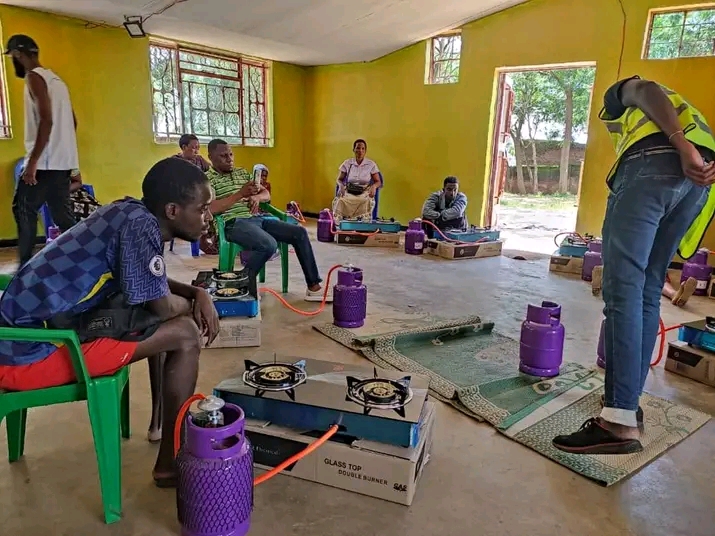MERA responds to LPG suppliers’ concerns bordering on licensing
BY CRISPIN KASIYA - Suppliers of Liquified Petroleum Gas (LPG) and gas cylinders are complaining that they are required to apply for several licences if they intend to open a number of shops, and would like to lobby for an issuance of one licence for all selling points.

The concerns were raised by some suppliers who are partnering Community Energy Malawi (CEM) in the implementation of an environmentally friendly cooking project dubbed Phikani Moganizira Chilengedwe which is being implemented in Lilongwe and Zomba cities.
The project aims at accelerating adoption of clean cooking technologies with fighting climate change as one of its expected results. One of the deliverables of the project is to supply LPG to households. The problem comes when players in the gas industry are compelled to apply licence for each and every gas selling point which becomes expensive to them and hence affecting their efforts to improve alternative cooking delivery services.
Reaction to the concerns, Malawi Energy Regulatory Authority (MERA) says each retail licence is site specific and the institution currently licenses the facility where the gas business is being carried out.
MERA spokesperson Fetina Khonje insinuates that each site is expected to meet minimum requirements for it to be approved and issued with a retail licence.
“The LPG retail outlet sites are dynamic and have different operating environments and activities even if they may belong to a single individual. On the other hand, think of those rare times when MERA has to revoke a license for a non-compliant site, with the proposed approach (of one licence per operator) it may mean revoking a license for all sites,” she explains.
On the role MERA is playing to ensure there are more players to increase uptake of the technology, Khonje says the energy regulator has vibrantly promoted the LPG sector in various ways including a wish for Government to remove taxes on LPG and accessories.
“We reviewed and minimised technical requirements for investors to get into the business, and developing requirements to streamline the processes of getting approvals in the sector. We also conducted sensitizations programmes targeting both retailers and importers,” she explains.
Khonje brags that since 2020 to end 2022 LPG imports increased from 1,109 tonnes to 2,187 tonnes and consumption increased from 1,105 to 2,195 tonnes.
According to MERA PRO, the number of importers/gas marketing companies since 2021 has risen from three to seven.
“The new importers that have joined Afrox, Delta Gas and Industrial Oxygen Ltd are Gasco, Falcon Gas, MERU LPG and Yogas. The number of retailers has doubled, other sites are under construction and we continue to receive and process applications,” she discloses.
MERA continues to develop deliberate strategies to make LPG attractive at all levels of the supply chain, for instance, developing standards for LPG transportation, cylinders, accessories among others.
“We are continuing to lobby OMCs to get into the gas business leveraging their large footprint into the country thereby greatly increasing accessibility of gas,” Khonje says.
Currently, licence fee for LPG have been revised. Storage licence fee is at K250,000 from K1,500,000; retail filling K50,000 from K500,000; wholesale K200,000 down from K1,500,000; import K500,000 from K2,000,000 and storage licence is pegged at K50,000 from K1,500,000. The revised fees are yet to be gazette.
On what changes can be appreciated to better regulate the services especially in relation to the gas industry, Khonje was quick to mention about the idea of a one-stop shop which could cater for all approvals by various government agencies. This, she says, seems viable to help investors obtain all approvals in one place, this has been implemented in other countries, Ghana being one of them.
(0) Comments